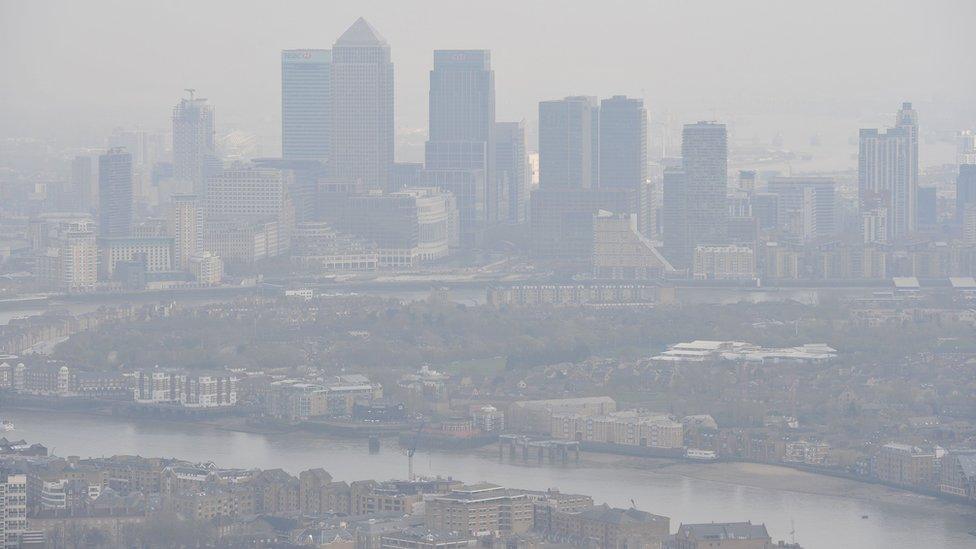Doubts raised over Sadiq Khan's clean air claims
- Published
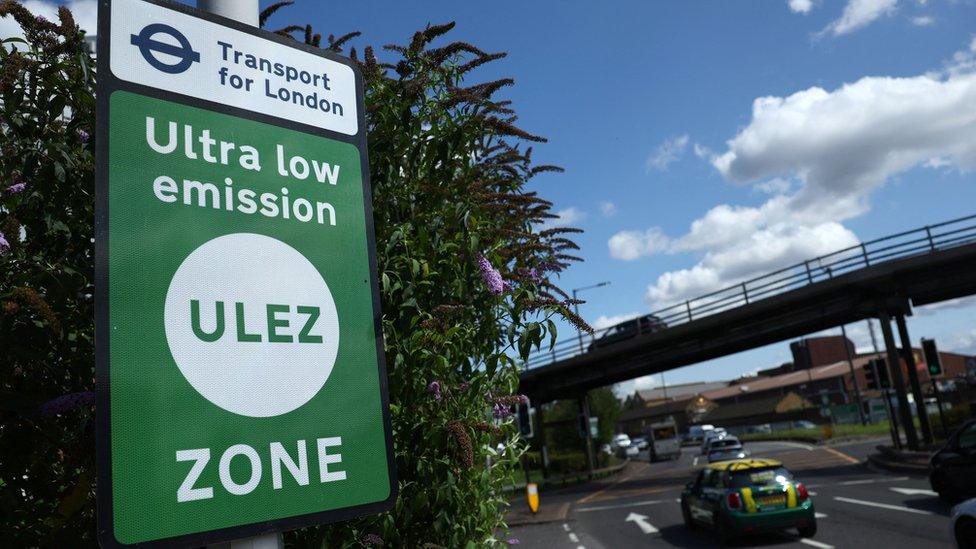
City Hall said time is needed to assess the latest data before it is released
Sadiq Khan has been accused of concealing the real impact of expanding the Ultra Low Emission Zone (Ulez) from voters ahead of the mayoral election.
The zone was extended to outer London six months ago but Londoners will not see data on its effect on air quality before the May vote.
The Conservatives claimed he is hiding figures likely to show a negligible impact on pollution.
A spokesman for the mayor said it took time to "properly assess" the data.
The Liberal Democrats say Mr Khan is misleading Londoners by attributing benefits to Ulez that have come from other measures.
In a new report, the mayor claimed that since he was elected in 2016, air quality had improved faster in London than the rest of the country - with Ulez a big factor.
Mr Khan said he had cut nitrogen dioxide pollution in half and achieved the lowest annual levels on record - although the figures for a lot of the year were provisional., external
'Improvements came before Ulez'
But the Lib Dems said the report showed most of the improvements came before Ulez and resulted from cleaner lorries, modernising the capital's bus and taxi fleets, and people naturally replacing older, more polluting vehicles.
An emissions levy called the T-charge was introduced in 2017, buses had to comply with a separate Low Emission Zone by 2016 and the regulations on lorries were tightened in both 2012 and 2021.
Lib Dem mayoral candidate Rob Blackie said the report showed that in 2016-17 there was a 77% drop in the number of hours where roadside monitoring sites picked up high levels of nitrogen dioxide, and the reduction tailed off after that.
But City Hall said the monthly average nitrogen dioxide roadside concentrations came down sharply after that time thanks to Mr Khan's policies including improvements in the bus fleet and preparations for Ulez.
Mr Blackie said: "The mayor is making claims that are misleading, by confusing the impact of the Ulez with other policies and longer-term trends towards cleaner cars.
"He has admitted that proper studies of the impact of Ulez won't be published before the election.
"The mayor can't have his cake and eat it. The data on the impact hasn't been published - so he can't take credit for it."
A spokesman for the mayor confirmed the first assessment of the effect of Ulez - expanded to outer London - would come after the election.
"There has always been a gap between the launch of a scheme and the publication of a corresponding evaluation report," he said.
"For example, there was a nine-month period between the inner Ulez London expansion (October 2021) and the publication of the six-month on report (July 2022)."
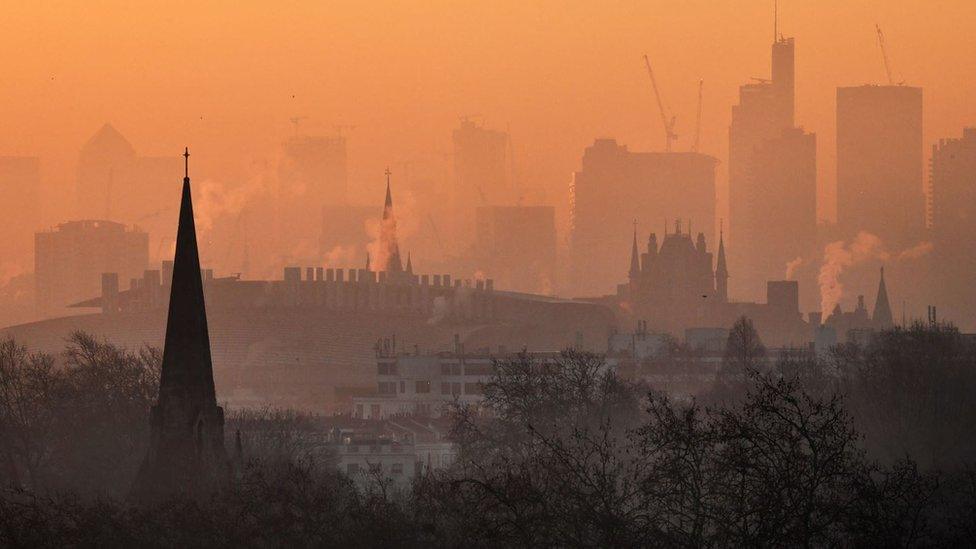
The figures are likely to show a negligible impact on pollution, the Conservatives say
Without having access to comparisons of air quality before and after expansion, voters are left with official forecasts.
The key study carried out by consultants Jacobs in 2022, external found that extending Ulez to outer London would have a "minor" impact on exposure to nitrogen dioxide pollution and a "negligible" impact on carbon emissions, one of the main agents of climate change.
Introducing Ulez to central and inner London reduced pollution in outer London well below legal limits - leading critics to question why it needed to be expanded.
The study said there would be a "moderate" reduction in nitrogen oxide emissions from diesel vehicles, and the health impacts were forecast to be small.
'Didn't listen'
Conservative mayoral candidate Susan Hall said Mr Khan had "decided to hide" the true impact until after the election.
"He was told from the beginning that it would have a negligible effect on air quality, but he didn't listen," she said.
"It is a joke but no-one is laughing. I will listen to Londoners and scrap Ulez expansion on day one."
The plan to extend Ulez was not in Mr Khan's 2019 manifesto and proved controversial.
Ahead of Ulez's implementation in August 2023, it prompted objections from some Labour MPs, a failed High Court challenge from five local councils and was held responsible for Labour's failure to win the Uxbridge and South Ruislip by-election last summer.
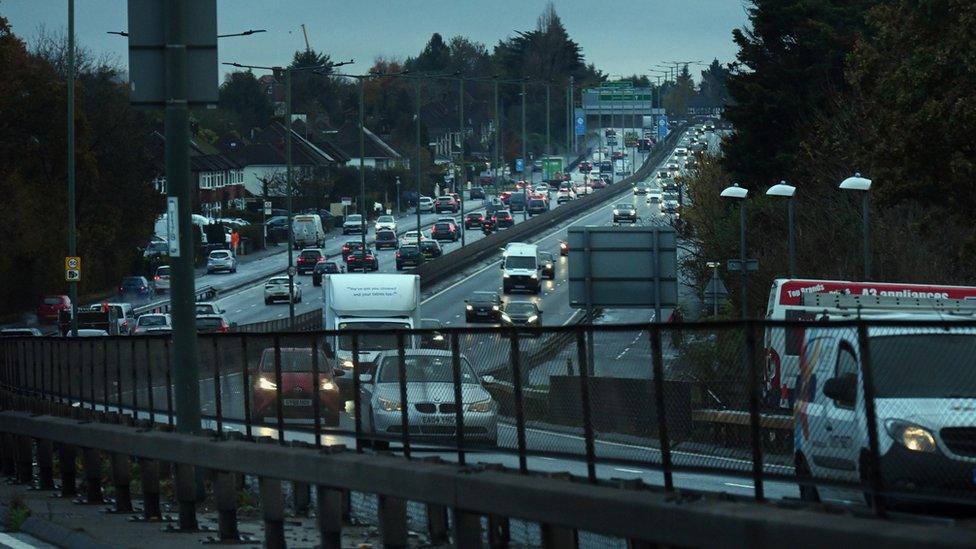
The plan to extend Ulez was not in Mr Khan's 2019 manifesto
The latest report from the mayor says 360 tonnes of nitrogen oxide emissions were eliminated by the Ulez expansion, equating to the annual emissions of commercial shipping on the River Thames, or a combination of the emissions of small private boats, rail transport in London and accidental fires.
Mr Khan also announced a fund of £5m for 17 borough-led projects to improve London's air quality in local communities.
Zoe Garbett, the Greens' mayoral candidate, said: "The mayor continues to build road projects that damage air quality, like the Silvertown Tunnel in east London.
"More traffic and more pollution damages people's health, and we cannot force more damage on to some communities while improving things for others."

Listen to the best of BBC Radio London on Sounds and follow BBC London on Facebook, external, X, external and Instagram, external. Send your story ideas to hello.bbclondon@bbc.co.uk, external
Related topics
- Published2 November 2023
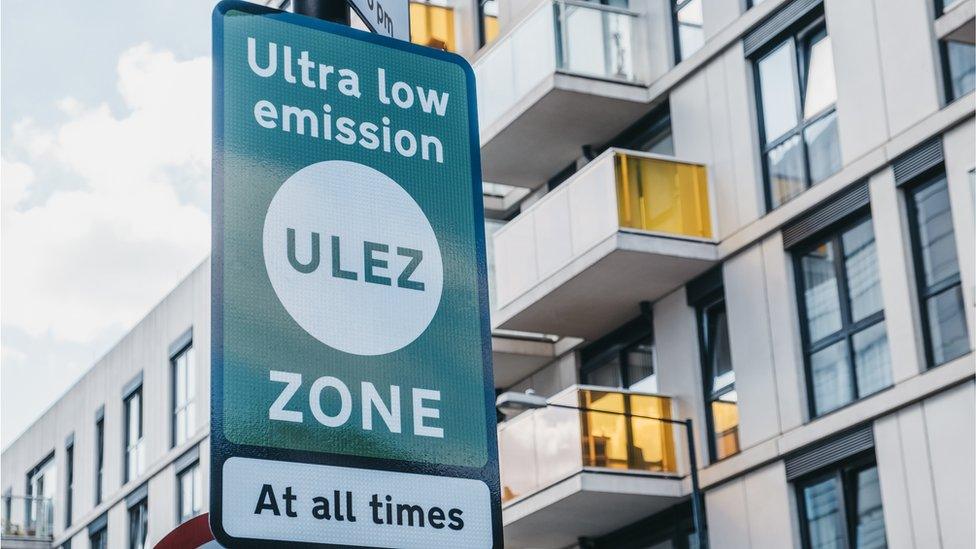
- Published29 August 2023
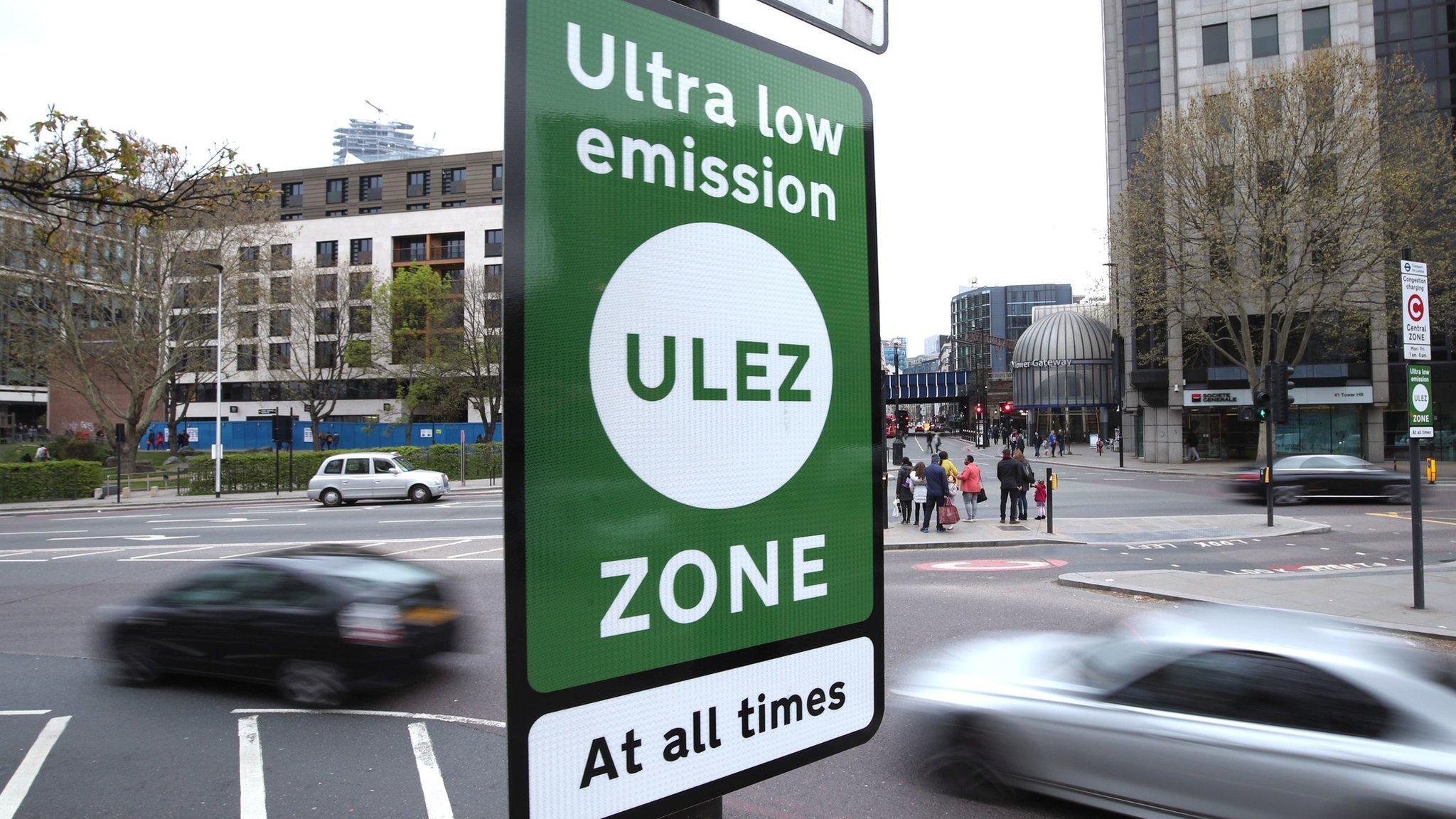
- Published17 April 2023
